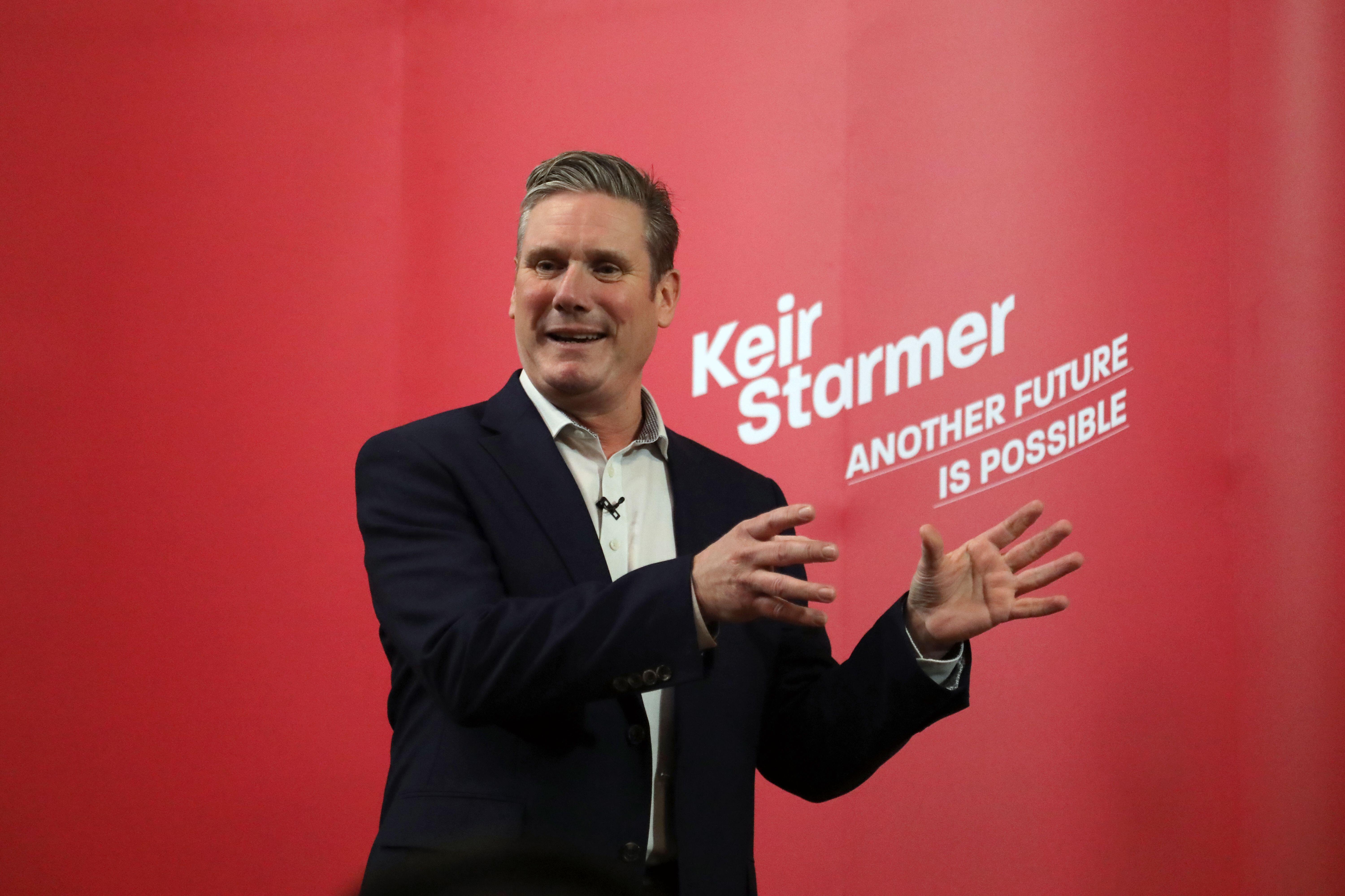A Lesson to the Left on Both Sides of the Atlantic: Economic Credibility Is Essential to Winning and Retaining Power – Matthew Lloyd
Joe Biden's victory in the US presidential election - winning the largest number of votes of any presidential candidate in history - offers a stark lesson to the left on both sides of the Atlantic: that economic credibility is essential to winning and retaining power.

Image of the leader of the Labour Party, Keir Starmer.
However inspiring its social programme may be, If the electorate is not confident about the economic competence of a political party, then that party stands little chance of securing or keeping power.
The importance of economic credibility was reemphasised in the US election CNN exit poll. A majority of Americans who rated the condition of the economy as excellent or good voted for Trump. Most Americans rated the economy as their highest priority. In another poll, only 45% of Americans trusted Biden over Trump on managing the economy. Despite all the controversy around the Trump administration, it may well have been the case that, in the absence of Covid-19, ‘the economy, stupid’ may have ensured a second term for the President.
The same constraints are present in the UK. Despite the political and economic changes since the 2007/8 financial crisis, a key rule remains: An opposition Labour Party must be ahead of the government, or come close to matching it, on economic competence in order to win a general election.
Political parties on the left– particularly when in opposition - do not get to choose the structural constraints of politics. It is primarily the electorate’s prevailing opinion on the state of the economy that defines the constraints that political parties must navigate. Economic credibility is crucial to reassuring both the electorate and the markets that a future left-wing government will not threaten their prosperity.
The left in both the UK and the USA have attempted to convince their own parties that they can successfully navigate the economic constraints of politics. To date, however, it has either failed to win over its own party supporters or else failed to lead the party to a general election victory.
Democrats rejected left-wing Bernie Sanders in the 2016 and 2020 primaries. And the party may have been correct in doing so. Results that suggest some Republican supporters voted Biden for President and Republican for the House, so it is highly unlikely that a Sanders Presidential campaign with its more ‘progressive’ economic platform could have built Biden’s winning coalition.
In the UK Labour Party, the left has always maintained that a more left-leaning socialist policy platform could win general elections. The UK left managed to convince their fellow party members to test this hypothesis with both Foot and Corbyn. These attempts led to electoral defeat in UK general elections as the left proved unable to navigate the economic constraints of politics. Jeremy Corbyn secured the unfortunate accolade of having the worst economic ratings with the public since records began. In short, the left criticises centre-left leaders’ strategies to navigate the constraints of politics but, when they are placed in charge, their electoral promises fall flat and the party ends up in an electoral dead end.
If we imagine politics as a maze, political parties must race each other through the maze to get to the centre and win the election. If they fail to navigate correctly then the party will end up at an electoral dead end. The problem for the left in both the US Democrats and the UK Labour Party is all too often their lack of economic credibility. As long as we operate as a democracy within a capitalist economy, economic credibility will always form a crucial part of the constraints of the maze of politics.
Incumbents are judged on their economic management whilst voters judge the economic competence of opposition parties on their image, leaders and their own ideological prejudices. Biden must avoid a market backlash whilst in government in order to earn a record of good economic management. Therefore, Biden will need to implement his progressive policies such as raising the minimum wage to $15 an hour and a significant increase in green energy investment without spooking the markets. Starmer’s job is far more difficult because he must rely on his leadership and party image to present a picture of Labour’s economic competence whilst overcoming the electorate’s ideological bias. Starmer must present a compelling narrative about the kind of economy Labour wants to build for Britain whilst underpinning the vision with a convincing tax and spending plan. Labour must under-promise in opposition and then over-deliver in government.
Matthew Lloyd is a Political Science PhD student in the School of Politics and International Relations at Queen Mary University of London.